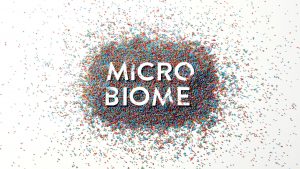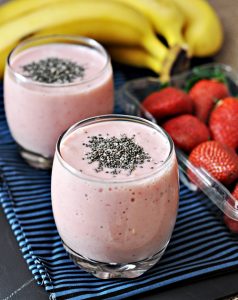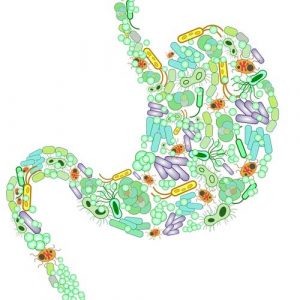 Maintaining Optimal Health with Microbiome
Maintaining Optimal Health with Microbiome
The human microbiome is an ecosystem of microbes composed of bacteria, fungi, protozoa and viruses that live inside and on the human body. We have about 10 times as many microbial cells as human cells (1). We’re used to thinking of bacteria as our enemies, but most bacteria are allies helping us perform basic bodily functions such as digesting food. Think of microbes as worker bees that perform most of the important functions in your body. Recently, the scientific community has really come to embrace the important role that the microbiome has in maintaining optimal health.
Did you know that your microbiome has the following roles in maintaining health? 
-Absorption and assimilation of nutrients from our food
-Key role in strengthening our immune system and protecting us against pathogenic microbes
-Hormone synthesis and balance
-Digesting fiber
-Detoxification and elimination of toxins
-Mood balance
-Role in insulin sensitivity
Where do things go wrong?
Alterations in our gut microbiome (commonly referred to as dysbiosis) can occur due to many reasons; (2)
-Exposure to environmental toxins and pollutants
-Frequent use of antibiotics
-Poor diet low in fiber and high in inflammatory foods
-High stress levels

What are the signs & symptoms of dysbiosis?
-Bad breath
-Bloating
-Nutrient insufficiency due to reduced absorption and assimilation
-Abdominal pain
-Nausea
-Acne, inflammation of the skin
-Frequent infections
-Fatigue, low energy levels
What are steps you can take to support your gut microbiome?
Unfortunately, your microbiome isn’t a self-sustaining system; you need to give this ecosystem the nourishment it needs to thrive and work on your behalf, supporting your physical, mental, and emotional health. Below are tips from Nurse Fiona to support your microbiome:
(1) Consume probiotic foods such as milk or water kefir, kombucha, sauerkraut, kimchi and cultured vegetables. Also consider taking a high quality probiotic supplement. At Nuriss we can prescribe or recommend a

probiotic suited to your concerns. A brand of fermented foods Nurse Fiona loves and consumes daily is @pama.creations kimchi and pickles. These are available @planetorganic or from Stoke Newington, Primrose Hill or Queens Park farmers market
(2) Avoid common allergen foods including refined grains, gluten, and dairy, processed and packaged foods
(3) Consume fibre daily. Nurse Fiona suggests adding 1 Tbsp. of ground flax or chia seed to your smoothie, porridge or yoghurt daily
(4) Only consume antibiotics when absolutely necessary. If antibiotics are taken, ensure you follow up with a course of probiotics for 6 weeks after antibiotic consumption
(5) Reduce toxin exposure in your home by switching to natural cleaning products
References
- https://www.genome.gov/27549400/the-human-microbiome-project-extending-the-definition-of-what-constitutes-a-human/
- https://www.ncbi.nlm.nih.gov/pubmed/15253677
For more information or to book a consultation with Nurse Fiona – please contact [email protected]

